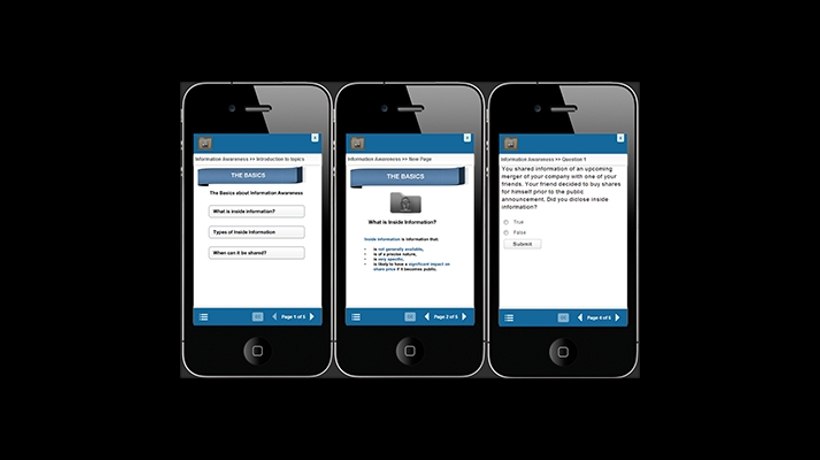App Strategy For Your eLearning Programs
A decade or two back, even the concept of getting an academic degree over the internet sounded fancy. With the advent of smartphones and other smart devices, pedagogy over an electronic medium is no longer a novelty but is a matter of convenience and efficiency.
This is especially true for an app based eLearning model. Recently, Chinese internet giant, Tencent announced a partnership with New Oriental Education, a private education company to launch an app-based micro-learning service. The fundamental reasoning behind the launch of such services is the growing need among learners to consume content on the move – during a subway transit or while waiting for a bus.
We have hence been noticing an increasing number of learning tools launch over the app platform. Right from simple school eLearning apps to enterprise apps like Docebo's productivity suite eLearning app or ERPGuru's eLearning applications for their Net Suite CRM customers, a number of sectors and industries today have eLearning apps for smartphones and tablets.
But are they effective? There has been some criticism over app-based pedagogy. For one, it is not easy to communicate complex curriculum over a smartphone with limited screen size. Secondly, learning is incomplete without discussions and such lengthy discussions cannot happen when users are hindered by a mobile keyboard. Finally, testing a learner on the concepts cannot be conducted comprehensively on a mobile platform – not all assessments can be done over a question & answer format and smartphones are not suited for subjective assessments.
However, as people from the eLearning industry, it is imperative to have an app strategy for your courses.
- Gamification
The efficacy of using gamification in learning has been a proven strategy. Apps are an ideal platform for instructors who want to gamify the learning experience. This is especially true if the target classroom comprises of millennials or if the subject does not need lengthy assessments. - Classroom Demonstration
Mobile learning tools can come in handy even in physical classroom environments where eLearning is not necessary. It is not always possible for modern technology tools to be made available to all students in a classroom. Mobile or tablet apps come in handy during such classroom demonstrations since they make it possible for such tools to be passed among students or be shared; thereby creating an opportunity for use of modern technology which may otherwise not be practical for use in the classroom. - On-Demand Learning
Not all learning programs are geared towards complete mastery of the subject. Some are meant to familiarize the student to the subject with the assumption that expertise may be gained over time through experience. This is especially true for orientation programs that new recruits to a company are made to go through. Mobile apps are handy for such recruits to get on-demand information on specific topics when they will need them on the job. For instance, take the example of the customer support industry where it is difficult to predict the kind of support the customer will call the support team for. A web or mobile app tool will help these new employees with the basic questions they will need to ask the customer in order to negotiate the problem.
Smartphones have become ubiquitous and it is extremely critical for the eLearning industry to adapt their curriculum to an app based pedagogy. While apps do come with their own set of problems and limitations, it is vital that we utilize them for the advantages that they offer while taking care of the limitations that may hinder the process. What are your thoughts?









